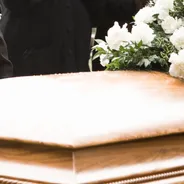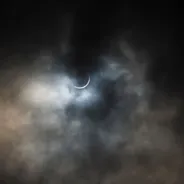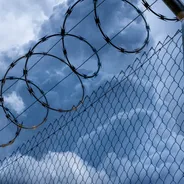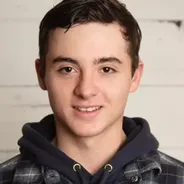To an outsider, Miracle Village may look like the standard American town. A sleepy suburb found in Palm Beach County, its white-walled houses and well-kept green lawns keep up the pretence of your average rural settlement. However, it harbours a dark secret: many members of the population are actually registered sex offenders.
The isolated community, based about three miles east of Pahokee, Florida, is a haven for those who have targeted young children as their victims, and is seen as a second chance for people "who have paid their debt to society and would like to become productive citizens once again." Officially named "The City of Refuge", the off-the-grid complex was originally created by Richard Witherow, a minister who worked in prisons for 30 years, as a solution to what he called America's "punitive, illogical, and counterproductive laws" which treated sex offenders as "modern-day lepers."
In the United States, second chances are normally off the cards for sex offenders. Convicted rapists and child-molesters are given long prison sentences and when released, are put on sex-offender registries. In most states, this means that their names, photographs and addresses are published online, so that fearful parents can check whether a child-molester lives nearby. Under the Adam Walsh Act of 2006, a law which - like many others - is named after a murdered child, all states are obliged to make some, if not all, of the information on their sex-offender registries public, so any member of the public is able to access them.
The rural village, which is surrounded by sugar cane fields, is the one place in the United States that promises to give its residents a brand new life - but this doesn't mean it comes without rules. The 100-plus convicted sex offenders living in the community are still subject to Florida's sex offender laws, which have been described as some of the most restrictive in America.
In Florida, child sex offenders cannot live within 1,000ft of schools, childcare facilities, or their victim, and in some cities and counties - including Miami - this restriction goes up to 2,500ft. In addition, registered sex offenders also cannot loiter within 500ft of community safety zones. While the strict laws are sure to make victims and their families feel more secure, in reality, they are difficult to abide by and many offenders struggle to find a housing in a place where they can reestablish their lives.
When the BBC's Stacey Dooley travelled down to Miracle Village to spend time with some of the sex offenders, she discovered that the people living there initially came across as average Americans, stating "if you didn't know their past, they'd seem harmless." But the truth was that some of these people had molested their own children or viewed child pornography. Others had abused minors while in positions of power or had sex with underage girlfriends.
A lot of the people in Miracle Village were functioning adults with families, jobs and social lives who could hold a conversation rather well. But stating that it was "all too easy to label them as monsters and tell yourself not to bother with them", Dooley soon saw that when you looked closer at the residents, the waters became murkier.
Take Chris Dawson for example. Dawson was convicted for having sex with his 14-year-old girlfriend when he was 18 years old. Although you could immediately write him off, if you believed his story, the 26-year-old was something of a victim himself. He told the BBC: "She lied to me about her age and had fake ID. I had no idea. All her friends believed her, so I believed she was 18 too. I used to play drums in a band and go on tour and have great friends."
The young man, who has lived in Miracle Village for four years after being charged with two counts of molestation and two of battery, has made a new life for himself, having gotten a new girlfriend named Lexi. But things will never be normal for the couple; the pair have never been out at night together, with Dawson having to meet his 10pm curfew.
His girlfriend Lexi, 25, spoke of the struggles of being with someone who lives in the community, saying: "At first it made me think twice, but the more I got to know him the more I saw his character and past the label. Things like marriage, living and kids are affected by the label of sex offender. I won't be able to host sleepovers or birthday parties or how am I going to tell my kids your dad is a sex offender."
Of course, that's definitely not to say that village doesn't harbour sex offenders who obviously fully intended to commit incredibly serious crimes. Dooley also encountered Pat Powers, a registered sex offender who claimed that he had served 12 years in prison after becoming involved in a relationship with a 16-year-old student when he was "one of the top racquetball coaches in the world."
However, Powers' lies came shattering down around him when Dooley searched the sex-offender registry and discovered that he had actually been convicted of molesting a child under 16. In addition, local news articles revealed that investigators stated he had molested 11 teen and pre-teen students and at the time they had named it "the largest sexual abuse case in county history."
His lies expose an important flaw in the Miracle Village community, and in the America legal system: why are people who molested their own children or viewed child pornography being treated the same as others who have evidently committed lesser crimes? Furthermore, the BBC show revealed that although child sex offenders cannot live within 1,000ft of schools, childcare facilities, or their victim, people like Pat could legally have their grandchildren come to visit and live in the village, where they would be surrounded by sex offenders, himself included.
These complications, along with several others, raise some important questions. Are America's sex offender laws adequate? Does Miracle Village actually serve its purpose? Do sex offenders actually get a second chance here? Do they deserve a second chance? The unique village offers a fascinating insight into exactly what it's like to live with the permanence of the label of "sex offender", but ultimately raises more questions than it answers.












